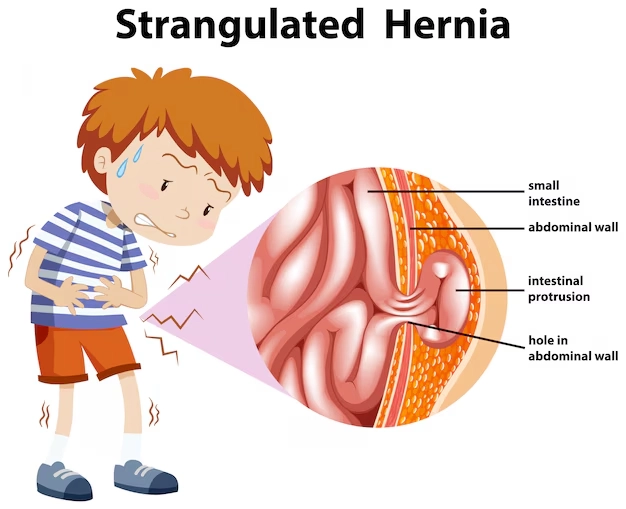Hernia Mesh Complications: Signs, Risks, and Legal Options
Hernia mesh is a widely used medical implant designed to reinforce weakened tissue and support hernia repair procedures. While many patients undergo successful surgeries, others face serious complications due to defective or poorly designed mesh products. For some, these complications result in severe pain, infections, and additional surgeries to correct the issues. If you have undergone hernia repair surgery and are experiencing unusual symptoms, it is crucial to recognize the warning signs of mesh failure and seek medical attention as soon as possible.

Ready to connect with top legal professionals? Get immediate support— Call us at 877-550-8911.
Connect with Our Legal Team
Is Your Hernia Mesh Defective? Key Symptoms to Watch For
If you have had hernia repair surgery, you might wonder whether your hernia mesh is functioning correctly or if it is causing complications. While some discomfort is expected during the recovery process, persistent or worsening symptoms could indicate a problem. Here are common signs of defective or failing hernia mesh:
- Chronic Pain – Persistent pain at the surgical site that does not improve over time or worsens with movement may indicate mesh failure or nerve damage.
- Swelling and Inflammation – Redness, tenderness, or swelling around the surgical site could signal infection or an adverse reaction to the mesh material.
- Bowel Obstruction – Symptoms such as nausea, vomiting, constipation, or difficulty passing stool may result from mesh migration or adhesion to the intestines.
- Infection – Fever, chills, discharge from the surgical site, and excessive fatigue can indicate a severe infection caused by the mesh.
- Mesh Migration or Erosion – If the mesh moves from its original placement, it can cause additional complications, including organ damage and chronic pain.
Early detection of these symptoms is essential to avoid long-term health complications. If you experience any of these issues, consult a medical professional immediately.
Common Causes of Hernia Mesh Failure
Hernia mesh complications can arise due to several factors, including poor-quality materials, surgical errors, and patient-specific health conditions. Understanding the root causes of hernia mesh failure can help patients make informed decisions about their medical care and legal options.
1. Poor Material Quality
Some hernia mesh products are made from low-quality materials that degrade over time, leading to complications. Polypropylene mesh, for example, may shrink, harden, or break down within the body, causing inflammation and chronic pain. In some cases, the body may reject the mesh, triggering an immune response that leads to further complications.
2. Surgical Errors
Even if the mesh itself is not defective, improper surgical techniques can contribute to failure. Issues such as incorrect placement, inadequate fixation, or excessive tension on the mesh can cause migration, folding, or tearing, leading to serious health risks.
3. Patient-Specific Factors
Individual health conditions, such as diabetes or obesity, may affect healing and mesh integration.
For more details on hernia mesh lawsuits and patient rights, visit Legal Case Review.
The Risks of Defective Hernia Mesh
A defective hernia mesh implant can lead to severe, life-altering complications. Some of the most serious risks associated with faulty mesh include:
- Chronic Pain – Persistent discomfort that requires long-term pain management or additional surgeries.
- Hernia Recurrence – Mesh failure can result in the hernia reappearing, necessitating another repair procedure.
- Adhesions – Scar tissue may form around the mesh, binding organs together and causing pain and restricted movement.
- Organ Perforation – If the mesh erodes or migrates, it can puncture nearby organs, leading to severe infections and internal bleeding.
A study published by the National Institutes of Health (NIH) highlights that certain mesh brands have higher complication rates. Patients should research their implant type and monitor for symptoms.
 How to Report a Defective Hernia Mesh Implant?
How to Report a Defective Hernia Mesh Implant?
If you suspect that your hernia mesh is defective, taking swift action is crucial. Here are the recommended steps to report and address the issue:
- Consult Your Surgeon – Discuss any symptoms you are experiencing and request imaging tests, such as an ultrasound, CT scan, or MRI, to assess the condition of your mesh implant.
- Report to the Manufacturer – Many medical device manufacturers have reporting systems for defective products. Document your symptoms and submit a complaint.
- File an FDA Report – The U.S. Food and Drug Administration (FDA) has a MedWatch program where patients can report complications related to medical devices.
- Seek Legal Advice – If your complications were caused by a defective mesh product, you may be entitled to financial compensation through a lawsuit.
Legal Options for Defective Hernia Mesh Victims
Patients who have suffered from defective hernia mesh implants may have legal recourse against manufacturers. A successful lawsuit can help cover medical expenses, lost wages, and pain and suffering. Here are the key steps to take if you are considering legal action:
- Gather Medical Records – Collect all documents that link your complications to the hernia mesh implant, including surgical records, doctor’s notes, and imaging reports.
- Consult an Attorney – Seek legal counsel from a lawyer experienced in medical device litigation. They can evaluate your case and guide you through the legal process.
- File Within the Statute of Limitations – Lawsuits must be filed within a specific timeframe, which varies by state. Waiting too long may result in losing your right to compensation.
Many defective hernia mesh lawsuits have resulted in substantial settlements for victims, holding manufacturers accountable for producing unsafe medical devices.
How Medical Professionals Detect Hernia Mesh Problems
If you suspect that your hernia mesh is failing, your doctor may use several diagnostic tools to confirm the issue. These may include:
- Physical Examinations – Checking for signs of swelling, tenderness, or abnormal lumps.
- Imaging Tests – CT scans, MRIs, and ultrasounds help assess mesh position and detect complications.
- Exploratory Surgery – In severe cases, doctors may perform surgery to locate and remove defective mesh.
Preventing Hernia Mesh Complications
Although not all complications can be prevented, taking the following precautions can help reduce your risks after hernia repair surgery:
- Follow post-operative care instructions carefully, including activity restrictions and wound care guidelines.
- Monitor for signs of infection, such as fever, redness, or unusual discharge from the surgical site.
- Attend all follow-up appointments to ensure proper healing and early detection of complications.
- Stay informed about the type of mesh used in your surgery and any associated risks.
FAQs
1. What are the most common signs of hernia mesh failure?
Persistent pain, swelling, infection, bowel obstruction, and mesh migration are the most common indicators of a failing mesh implant.
2. Can defective hernia mesh be removed?
Yes, but removal surgery can be complex and depends on the mesh’s location and condition. Some cases require multiple surgeries.
3. How long do I have to file a lawsuit for defective hernia mesh?
The statute of limitations varies by state, typically ranging from 1 to 3 years from the date of diagnosis or when complications were discovered.
4. Which hernia mesh brands have the highest failure rates?
Certain brands, such as Ethicon’s Physiomesh and Atrium’s C-Qur mesh, have been recalled due to high failure rates and complications.
5. Where can I get legal help for a hernia mesh claim?
If you suspect that your hernia mesh implant is defective, visit Legal Case Review for expert legal assistance and a free case evaluation.
Don’t wait to secure the legal representation you deserve. Visit Legal Case Review today for free quotes and tailored guidance, or call 877-550-8911 for immediate assistance.

 How to Report a Defective Hernia Mesh Implant?
How to Report a Defective Hernia Mesh Implant?


